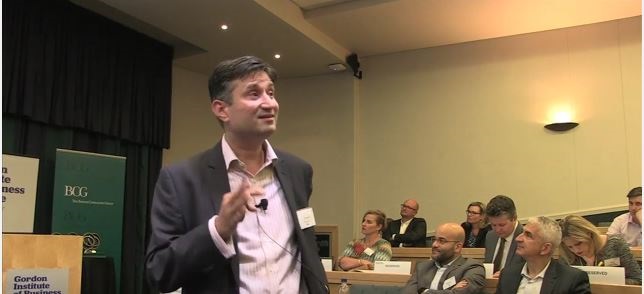
Despite predications of the end of globalisation and a move to increased market protectionism, the notion of a globalised economy is far from over.
“We are entering an absolutely new phase of globalisation,” Dinesh Khanna, leader of the Global Advantage Practice at the Boston Consulting Group (BCG) in Singapore and co-author of the 2016 BCG Global Challengers Report, told a recent Gordon Institute of Business Science forum.
Khanna said emerging markets were more influential and integrated into the global economy than they were a decade ago.
Global challenger companies, corporations from emerging markets who are not satisfied with just being leaders in their domestic markets and who had experienced incredible growth during the past 10years, had proved to be “amazingly resilient,” with many graduating to become global sector leaders.
While factors such as the slow down in the Brics economies and structural adjustment in China have placed a dampener on growth, the underlying fundamentals that fueled global integration, including technological innovation and institutional frameworks, haven’t changed, Khanna argued.
There are now multiple poles driving the global economy and the main engine of globalisation is still functioning, he said, with some emerging market economies growing at a healthy rate of between 4% and 5%.
“Growth has diverged, but it hasn’t disappeared.” Manufacturing-focused emerging markets are still performing well in comparison to their commodity-based emerging market peers.
“Finding growth will be more difficult, and among emerging markets, more nuanced,” he added.
An era of global challengers
BCG published its first list of global challengers in 2006, which tracks 100 global challenger companies in order to highlight the achievement of these firms.
“We underestimated in the original report the future potential of the global challengers,” Khanna said. The 2016 report found these emerging market firms had experienced an average 13% compound annual growth rate between 2009 and 2014, compared to 4% by their mature market peers over the same period.
“The challengers have been able to grow without sacrificing their profitability, and have created exceptional value,” Khanna said.
Despite the recent global economic slowdown, emerging markets had benefited tremendously from years of compound growth, while the challenger companies grew three times faster than their counterparts in mature markets, the report found.
Khanna said global challengers where often run by a team of exceptional entrepreneurs who were able to surround themselves with good people once the organisation went into “hyper growth mode.”
He said there has been a flight of talent opting to work in these organisations rather than at multinational corporations, as they often offered individuals more autonomy and flexibility.
Global challenger companies came from various emerging markets and from diverse sectors. South African companies included in the list were Aspen Pharmacare, Bidvest, MTN, Naspers and Discovery.
Nick Binedell, professor in strategy and leadership at the Gordon Institute of Business Science, told the forum that South Africa’s turbulent, dramatic and often difficult environment for business was a possible contributor to the resilience and innovative capability of these firms.
Stavros Nicolaou, senior executive of strategic trade development at Aspen Pharmacare said the only way to survive and grow in the current competitive environment was through innovation. Aspen had developed an area of specialisation and remained agile by cutting red tape and bureaucracy and having a lack of hierarchical structures.
Dr Jonathan Broomberg, CEO of Discovery Health, another South African company listed in the report, said his company was characterised by “vivacious and tremendous ambition.”
“We have a strong culture in the company and a devotion to a purpose, which is making people healthier. We encourage ongoing innovation and invest in that innovation.”
Broomberg said finding the right partners to enter into joint ventures with, as Discovery Health has done in China, was important for global expansion of the business.
What the future holds
Khanna said that as global challengers look for profit in a slower-growth world, they must be prepared to face increasing competition, not just from multinational global challengers but also from a new generation of local competitors.
BCG had identified 1500 successful, growing companies based in emerging markets as possible future competitors.
“The landscape of competition is a lot more dynamic and competitive. The entrepreneurial energy of the next wave is a tsunami,” Khanna said.
» City Press is a media sponsor of the Gibs forums




 Publications
Publications
 Partners
Partners








